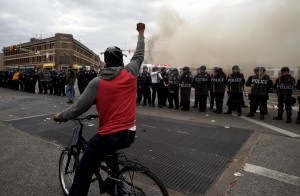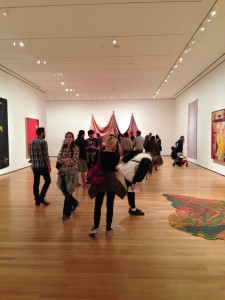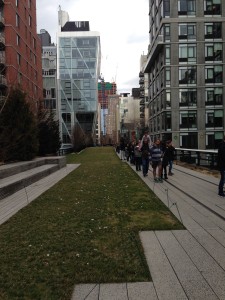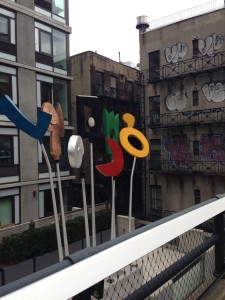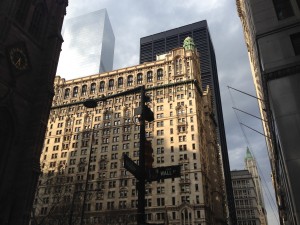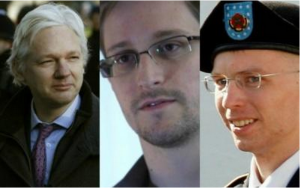Sean Morris
Staff writer
With 2,800+ innocent, unarmed people shot and killed by Police officers; most of which are African-American males, it’s impossible not to sympathize with this struggle,Through the lens of a mainstream, white-controlled media, it’s easy to villainize the protesters in Baltimore and other areas about this issue. as they will often label them as “rioters”, “thugs”, and so on. It only takes the the tiniest dosage of thought and research and we can see that this is not simply a “minority problem”. It is a human rights issue. And It’s impossible to say that the police force in the United States should not change.
In a report from USA Today last August, around 400 unarmed civilians were killed by the police per year in the past seven years, making the total number already up to 2,800 people-most of which were African Americans. In November, a mere 3 months after the report,Tamir Rice, a 12 year old, who was shot for having a toy gun outside a Walmart, which is even more infuriating when you consider how many actual white serial killers like James Eagan Homes are able to get away with simply being arrested by the police, yet the Police will shoot defenseless black children. You’ll hear and read about any number of news reports of cops being overly aggressive to what the situation requires. This is even more troubling when you compare it to several other countries,who have reports of much less civilian casualties.
While not all cops are killers, the problem has grown to the point where nothing short of an extensive change in the police force is needed. In our discussion on the topic, we agreed that the depth of the problem also called for some radical, systemic changes in how the police train and work.To this extent here are suggestions from SLA students for what could be some potential resolutions to this issue:
- Police should be required to live in the community they are policing.
- How this would help: Rather than have the police officers as an alien outside force, this gives the people and officers a sense of familiarity to allow for better cooperation and collaboration between the people and the officers,
- All police officers should wear body cameras that cannot be turned off.
- How this would help: Holds accountability to possible offending officers and allows for better transparency into situations. Below are some links to how it has already benefitted communities:
- http://www.nj.com/gloucester-county/index.ssf/2015/05/nj_police_department_sees_90_decline_in_ia_complai.html
- http://www.sfchronicle.com/news/article/With-body-cameras-rolling-police-use-less-force-6254667.php
- http://www.delawareonline.com/story/news/local/2015/05/08/expect-delaware-police-wear-body-cameras-soon/27016123/
- How this would help: Holds accountability to possible offending officers and allows for better transparency into situations. Below are some links to how it has already benefitted communities:
- All police departments should have civilian review boards with subpoena power.
- How this would help: Keeps the close collaboration of officers away from situations where personal feelings could mix with professional.
- All police should be required to attend regular training sessions to update their skills in handling mentally ill people.
- How this would help: Keeps potential innocents safe who can’t control all of their actions.
- End civil forfeiture- which allows the government to take cash, cars, homes and other property of people suspected of being involved in criminal activity.
- How this would help: Prevents unjust seizing of property when someone can be innocent. To read more about this troubling law, which is alieve and well espcially in Philadelphia go here: http://endforfeiture.com/
- Data on police misconduct should be public and easily accessible.
- How this would help: Prevents misformation from getting out.
- More protection for whistleblower cops. There was a Baltimore police officer who reported a beating to the prosecutor and was shunned by his department for it.
- How this would help: Protects cops who are doing what they are meant to; protecting and serving the public.
- Some form of a racial sensitivity class.
- How this would help: Attempts to diminish and eventually destroy racial profiling.
- How this could not help: cops could see it as an unnecessary and time consuming.
- Perpetuate knowledge-make certain that African Americans (and just youth in general) know their rights and how they can make a difference.
- How this would help: A better understanding of one’s rights allows for a smoother operation in the event of a police questioning.
- Impower a sense of self worth and pride within African Americans and for white allies to understand the anger in the situation because it is extremely justified.
- How this would help: In a white-powered media outlets African Americans crying for their human rights have become “thugs” and “rioters” and it’s important to shift the public misunderstanding to be in the advantage of those it has thus far disadvantaged.
While the situation in Baltimore is not ideal way to resolve, its utterly understandable how it’s come that, and it’s hard to see that without some kind of dramatic reform, the situation will not improve.
